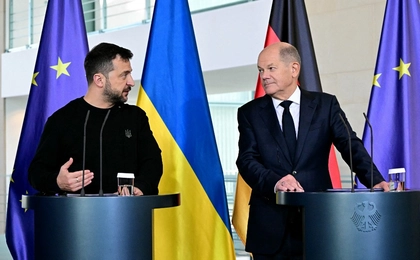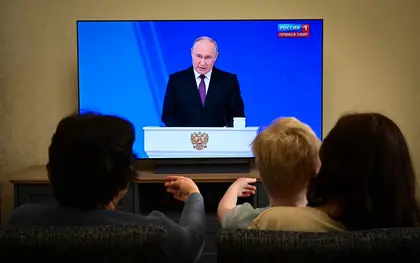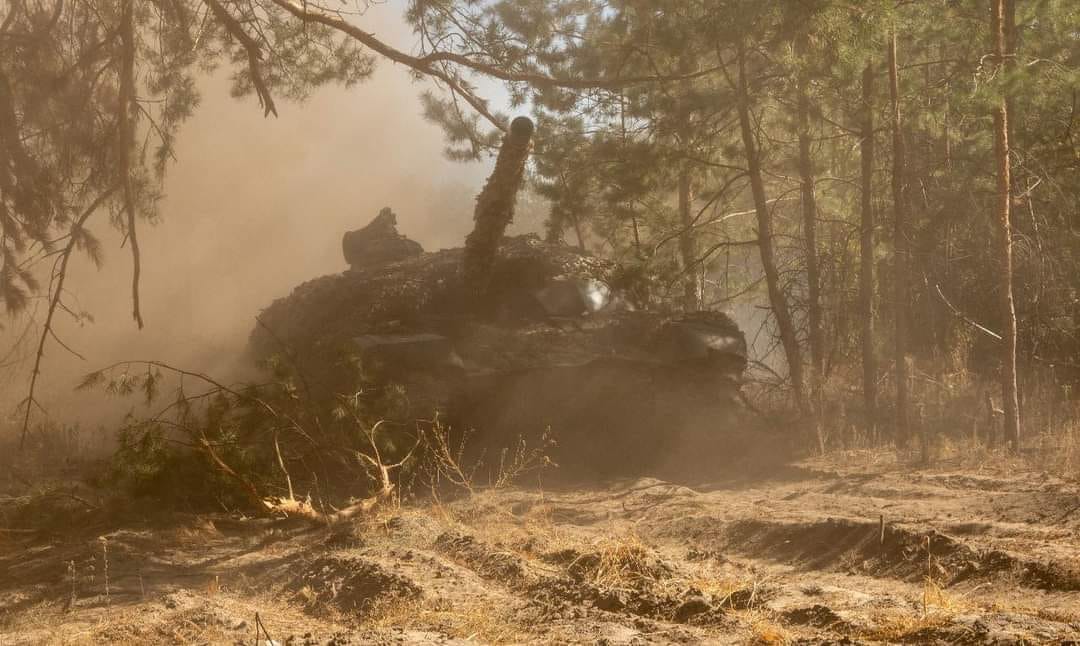Russia has launched a propaganda crusade to cynically argue that even though the Islamic State-Khorasan (ISIS-K) took credit for the recent Moscow concert hall terror attack, it was actually Ukraine, with its American and British overlords, behind the death of 137 Russian citizens in the audience that day.
On April 9, the Russian Investigative Committee found a link between the terrorists who attacked Crocus City Hall and Ukrainian security services. And last week, Russia’s Security Council Secretary Nikolai Patrushev confirmed that the terror attack could be traced to Ukrainian special services and reminded the Russians that “the Kyiv regime is not independent and is fully controlled by the United States.” Why is the Kremlin so keen to argue that it was not ISIS but Ukraine plotting the carnage in Moscow?
JOIN US ON TELEGRAM
Follow our coverage of the war on the @Kyivpost_official.
Aside from wishing to gin-up greater support for the invasion of Ukraine, which has caused nearly half-a-million Russian casualties and turned the world’s largest country into a pariah state, the Kremlin legitimately fears that the terror attack in Moscow could beg an uncomfortable question among Russians: Why are we fighting in Ukraine if we cannot even protect ourselves at home?
Putin rose to the presidency on the pledge that he alone could keep Russia stable and safe. As a result, the perception that Russia has been left vulnerable because of the Ukraine war undermines Putin’s leadership, now is requiring yet another round of mobilization of soldiers for the bloody quagmire which is increasingly causing disquiet in the public.

Ukraine Slams Scholz After First Call With Putin in Two Years
On March 7, the US Embassy in Russia cautioned that there were reports that “extremists have imminent plans to target large gatherings in Moscow, to include concerts…” to which Russian citizens have not forgotten Putin’s cocky response to the unheeded warning: He rejected it as a “provocation,” precipitating Russian intelligence’s disastrous failure to avert the attack.
Like a Ponzi scheme veering towards collapse, the deceptional conspiracies that Putin espouses are becoming too hard to swallow. Putin senses that his regime, for the first time in over two decades, is in a position of weakness, hustling to get ahead of the ISIS-narrative and its associated implications of Moscow’s failures to protect its citizens. However, unlike earlier cover-ups and manipulations, the events in Moscow have already been seared into the minds of Russians.
With nowhere to back-peddle, Putin attempts to affirm: “This atrocity may be just a link in a whole series of attempts by those who have been at war with our country since 2014 with the hands of the neo-Nazi Kyiv regime” – “Nazi” being a preferred Kremlin pseudonym for “Ukrainians” – based on the bizarre and illogical reasoning that since Ukraine, terrorists, and Nazis are bad – the words can be interchangeable.
Russia is not a stranger to Islamic terrorism being committed on its soil and they know that Putin’s involvement in Syria combined with his ties to the Taliban do not sit well with ISIS. So, for Russian citizens, it was readily believable when ISIS claimed responsibility for the attack, releasing details of how it was planned and videos to back up their claims. However, seeking to now link Moscow attack to Nazis and Ukraine, is perhaps a bridge too far.
Undeterred, Alexander Bortnikov, the Director of Russia’s Federal Security Service (FSB), stated that “the US, Britain, and Ukraine are behind the terrorist attack in Crocus City Hall.” He concluded that “the action was prepared both by the radical Islamists themselves and, of course, facilitated by Western special services, and Ukraine’s special services themselves have a direct connection to this,” aligning with Nikolai Patrushev’s “Ukraine, of course,” when a reporter asked the Secretary of Russian’s Security Council whether it was ISIS or Ukraine behind the attack.
The Kremlin, through its control of the information space in Russia, uses communication as a weapon. However, Moscow’s lies in disinforming its citizens about the terror act’s “connections” to Ukraine is making the system unstable. That is why it is time to tip the balance to the side of truth by running information operations, in Russia, to give Russians a real view of how their dictator’s poor leadership has damaged their national security.
Discrediting Moscow’s claims regarding the terror meshes brilliantly with stoking concern in Russian society that perhaps Putin is no longer a guarantor of peace – but rather a catalyst for putting their very lives into jeopardy: Perhaps Russia would be better off without Putin?
The Kremlin has spent decades spewing deceptions at home and abroad. The US must set the record straight.
The views expressed in this opinion article are the author’s and not necessarily those of Kyiv Post.
You can also highlight the text and press Ctrl + Enter






